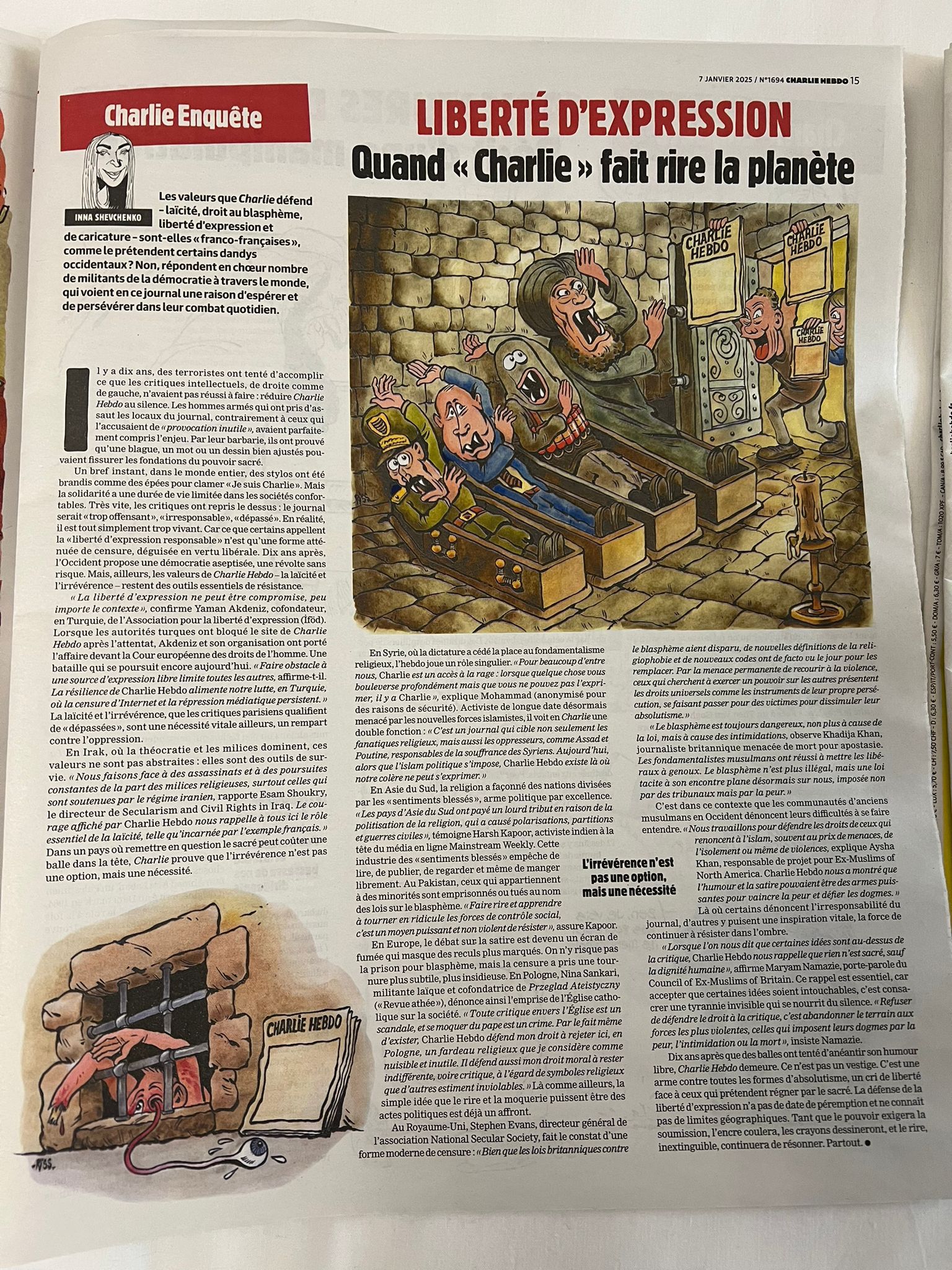The right to blasphemy, a cornerstone of free expression and democratic societies, is a universal human right and demand. It is not limited to or dependant on one’s ‘identity’ or lottery of birth. In fact, it matters most to those living under totalitarian and theocratic states.
In many countries under the hold of theocrats, like Iran and Afghanistan, being a woman in and of itself is an act of blasphemy, our bodies, hair, eyes, voices. Sitting in the front of the bus reserved for men in a system of sex apartheid: blasphemy. Refusing to wear the compulsory veil or laughing out loud: blasphemy. Being an atheist, gay, apostate or ex-Muslim: blasphemy. Opposing a religious state or the rule of clerics: blasphemy. Celebrating 1 May or 8 March: blasphemy…
The struggle to blaspheme is a struggle for the right to be fully human.
The Haymarket Affair (where a number of workers were killed and four executed in Chicago in 1886 for protesting for an eight-hour day) has become a symbol of the international struggle for workers’ rights with May Day marked worldwide. Likewise, the attack on Charlie Hebdo in January 2015, ten years ago, has become a symbol of the international struggle for the right to free expression and is marked worldwide.
Thank you Charlie for poking fun at Gods, masters and prophets. On this tragic anniversary, we honour you and all our fallen who have challenged the sacred and taboo and changed the world one blasphemy at a time.
See Inna Shevchenko piece in Charlie Hebdo.
“When we are told that certain ideas are above criticism, Charlie Hebdo reminds us that nothing is sacred except human dignity,” says Maryam Namazie, spokesperson for the Council of Ex-Muslims of Britain. This reminder is essential, because accepting that certain ideas are untouchable is to consecrate an invisible tyranny that feeds on silence. “Refusing to defend the right to criticism is to abandon the ground to the most violent forces, those who impose their dogmas through fear, intimidation or death,” insists Namazie.

Leave a Reply